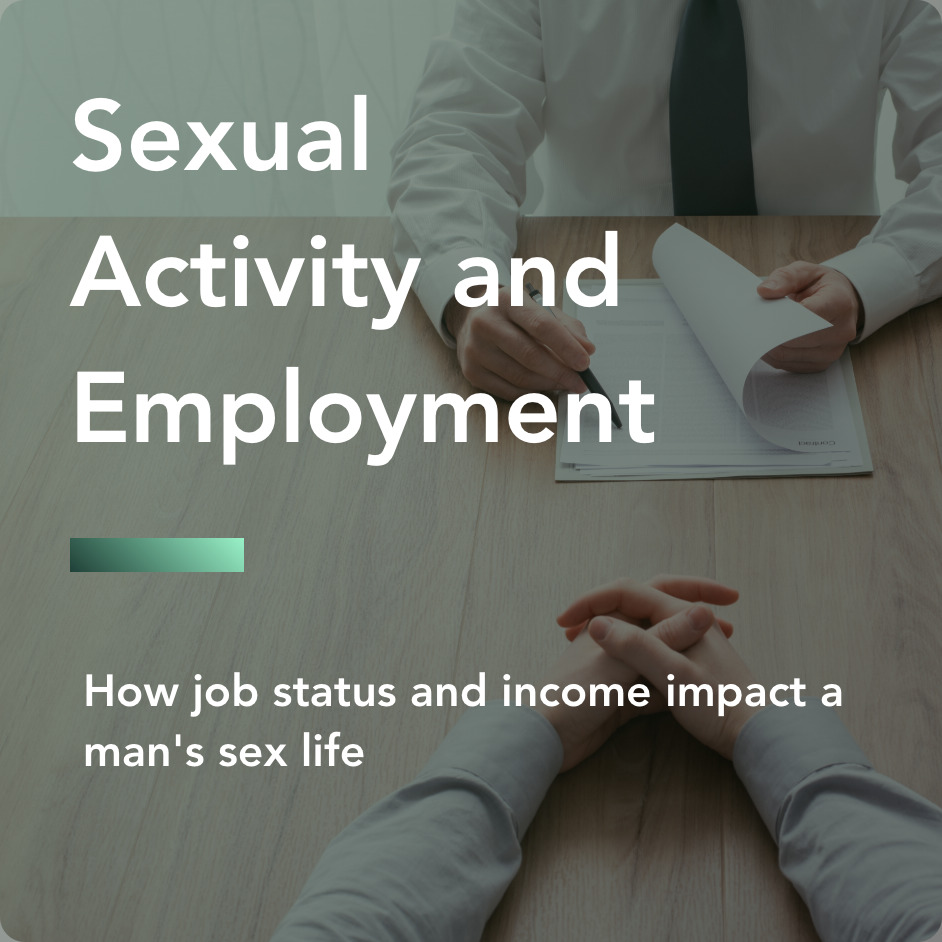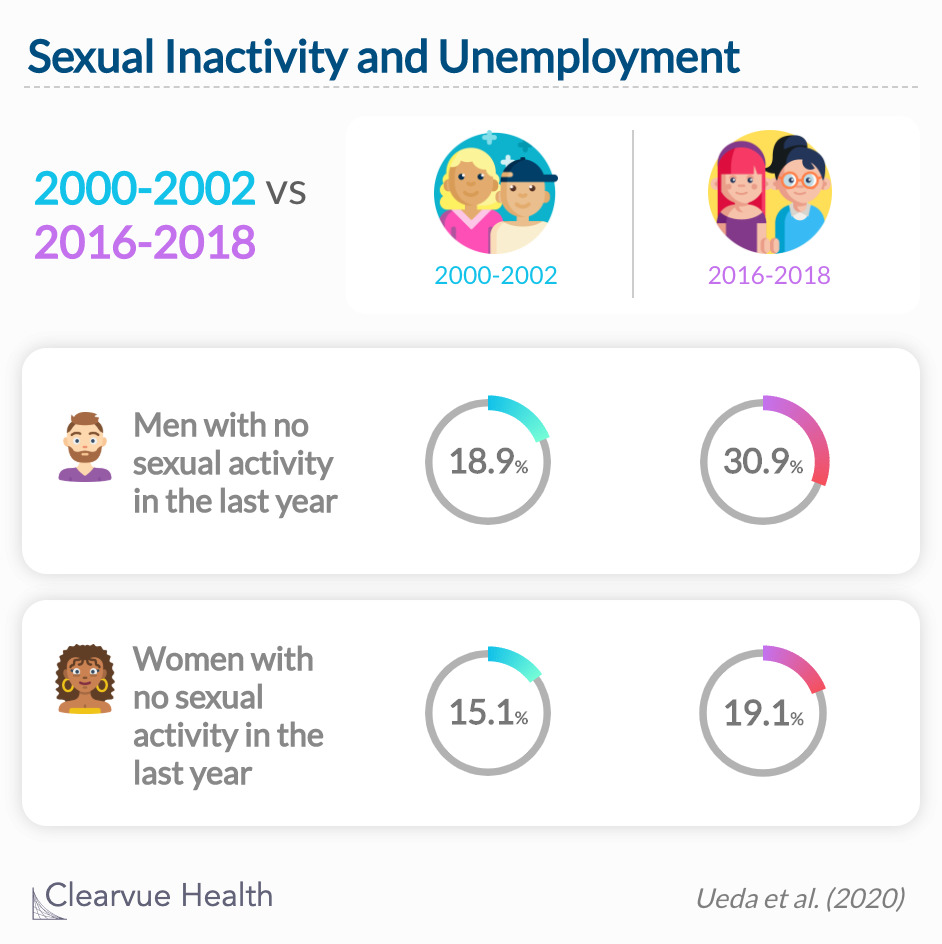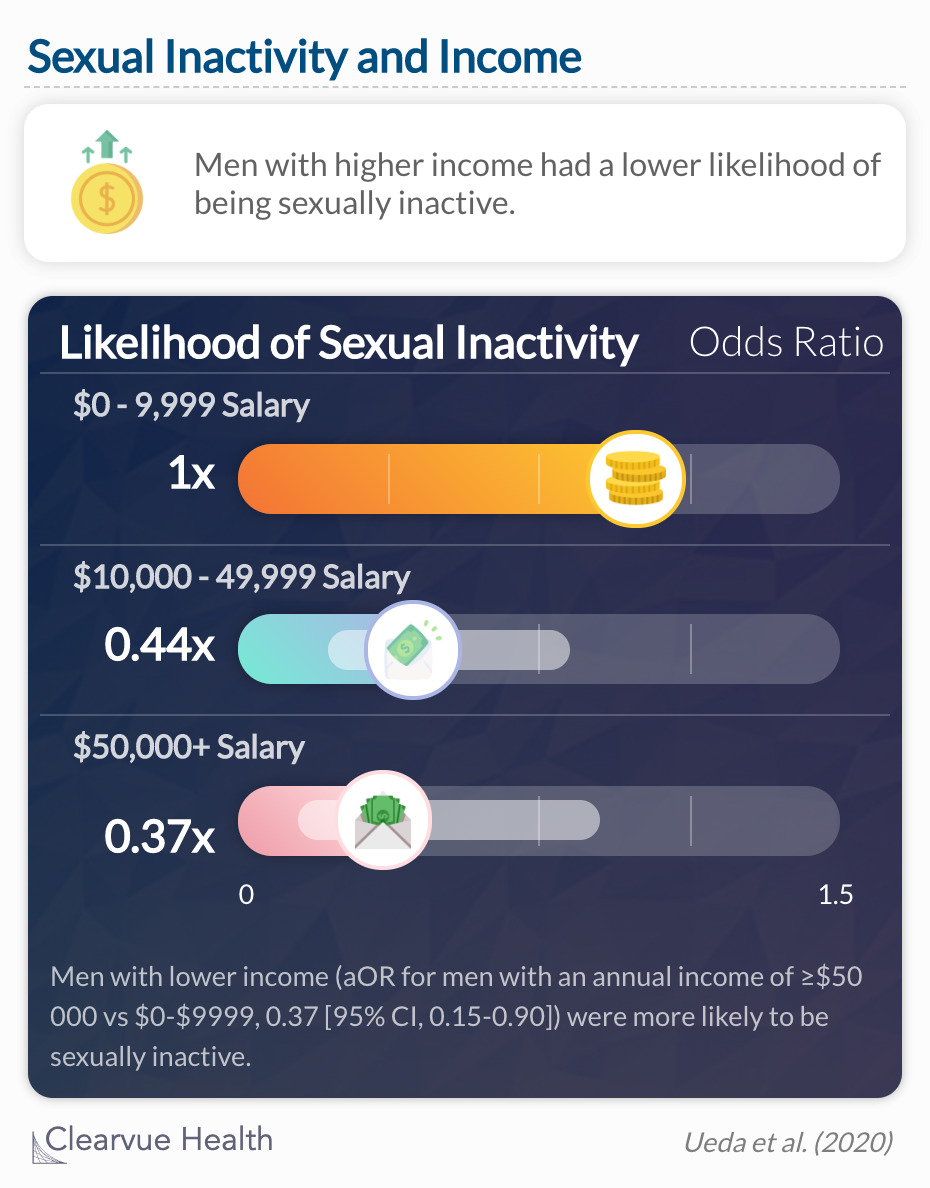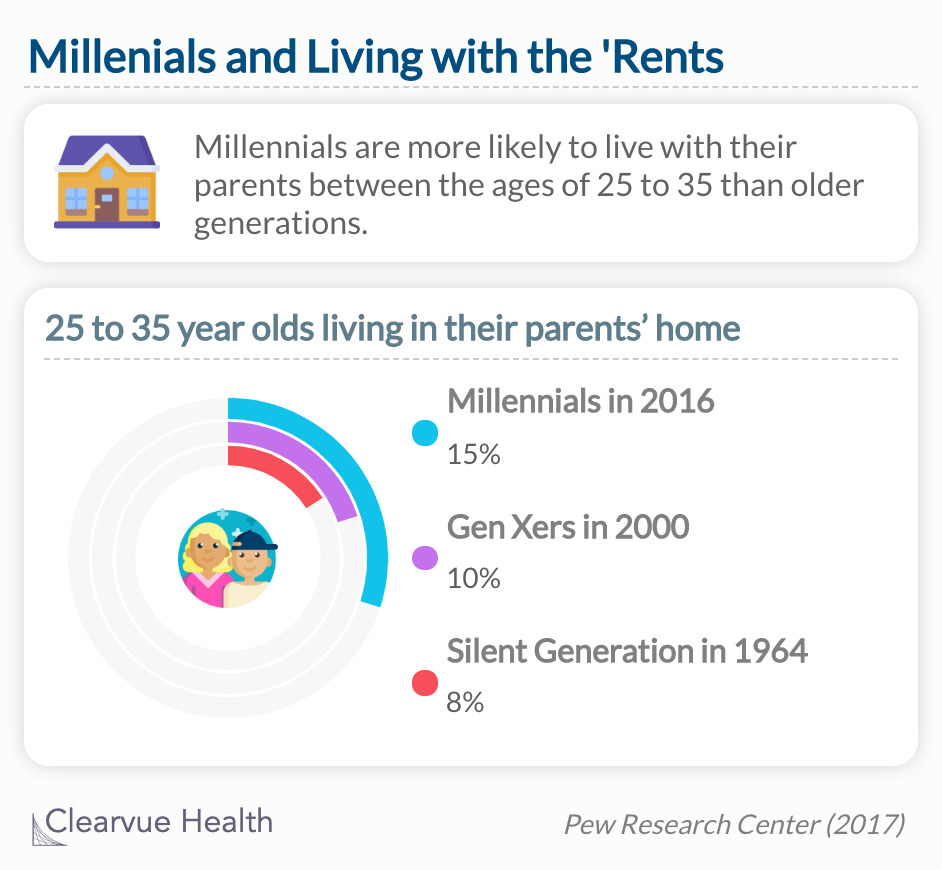There are many qualities that partners can find attractive in a man; a sense of humor, good looks, effective communication skills. A large collection of psychological studies have explore the concept of attractiveness. Recent data published in JAMA has added to the collection. They say that employment is a predictor of success in sex and dating.
When employment decreases, so does sexual activity
In this study, researchers looked the sexual activity of 4291 men and 5213 women aged 18 to 24. They compared cohorts in 2000-2002 and 2016-2018 to assess the difference in sexual activity trends over time.
Source: Trends in Frequency of Sexual Activity and Number of Sexual Partners Among Adults Aged 18 to 44 Years in the US, 2000-2018
Men and women reported a decrease in sexual activity, but only the difference among men was significant. Men who were unemployed and had a lower income were the most likely to be sexually inactive. Societal rules and expectations of gender roles probably contribute to these findings. Employment and income are more attractive characteristics of men than women, according to this data.
Sex in the parent’s house?
“
It is more difficult to date and engage in sexual activity when not economically independent of one’s parents.
JAMA
Source: Possible Reasons US Adults Are Not Having Sex as Much as They Used To
Source: It’s becoming more common for young adults to live at home – and for longer stretches
An explanation for the association between sexual activity and unemployment is the likelihood of living in a childhood home. As of 2016, millennials are more likely to live in their parent’s homes than ever before. There are a variety of contributing factors to this statistic; economy, salary, student debt, housing prices. Unemployment and a lack of financial stability are clear contributors to housing. Regardless of the cause, millennials who live with their parents are less likely to participate in adult activities, such as sex and dating.
Money and sex
As sexual activity decreases among young men, we also see a decrease in employment. The lack of employment restricts a young man’s independence. According to JAMA, adult activities go hand in hand. If a young man is unemployed, he is also less likely to date, drive, drink, and socialize outside of his family unit. In short, financial independence is a gateway for young adults to mature into full-blown adulthood.






































